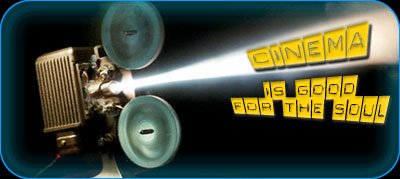 Gran Torino (2008)
Gran Torino (2008)starring: Clint Eastwood, Christopher Carley, Bee Vang, Ahney Her, Brian Haley, John Carroll Lynch
dir. Clint Eastwood
I'm pretty mixed about this movie. I was wanting it to be great. It has moments of greatness, and I would say it is up there as far as Eastwood movies go, but there were several moments that just didn't work for me.
Technically it's very solid. Eastwood is an excellent craftsman and tells his stories with an economy that creates an atmosphere without relying on a heavy style or cutting factor. As a matter of fact his simplicity is so good an insert shot can get in the way. One moment in particular has Eastwood's Walt Kowalski catching his granddaughter in the garage smoking. The insert shot shows his foot crushing the cigarette, but it's the two shot of them that counts and feels interrupted by the insert. Yes, a minor quibble, but it distracted me and that was the biggest flaw at times, the small distractions.
One of the more irritating of these small distractions was Eastwood's continual growl of disapproval. The man has done some amazing physical work here and when it's ended with a growl that reminded me of Marge Simpson's disapproval, I kind off felt cheated. It feels disingenuous, like he was afraid the emotion wouldn't come across through his eyes. There are times he uses it to great effect, but it's over overplayed and I actually started worrying if he was going to growl in scenes. The second and bigger distraction was Father Janovich played by Christopher Carley. Now I don't know if Carley was the wrong choice, or the character was poorly written, but I just didn't get where he was coming from in a very important scene. He confronts Kowalski and I'm not sure what he was trying to say. You'll know the scene when it happens. It was confusing and could have easily used a rewrite or an actor with more experience to really find a direction and go with it.
There are also some minor plot devices that made me feel a little perturbed. I'd call them quick and easy cheats so certain characters and the audience are left off the hook for certain actions, but discussing them here would spoil a, for the most part, emotionally satisfying ending.
In his defense,Eastwood made this film quickly. In his dropping of the ball, Eastwood made this film quickly. With a little more time and fine tuning, all of these minor quibbles could have been worked out.
On the good side though you have, Bee Vang and Ahney Her as the teenage Lor siblings who are outstanding in first time performances. Ahney Her is especially good as Sue, the Hmong neighbor who decides to accept Walt for who he is as bring him into her family. There is a level of honesty and tenderness that forms between them that is genuinely touching and provides a great sense of humor throughout the first two-thirds of the film. Bee Vang is good as well. He slips at times, but he is also given a character that has to live from the inside and Vang pulls it off with solid success.
Eastwood gives a very strong performance, minus extraneous growling. I don't know if it equals the power of his confessional scene in Million Dollar Baby, but it is very good. There was that internet babble of "This is for Dirty Harry what Unforgiven was for The Man With No Name" stuff, but I didn't feel that. Other actors could have played the role, it would have been different and maybe not as deep because of the Eastwood mythology. It's Eastwood's understanding of his myth that helps flesh out the character and he uses it with great success.
My personal favorite is John Carroll Lynch as the barber Martin. Lynch is an incredible character actor who we've seen in Zodiac, Fargo and Beautiful Girls. He's a real talent and is awesome playing off of Eastwood. The banter and jibes sail between these two actors and you wish there was more with them. It's these scenes that establish that language is extremely versatile. What could be construed as racism by one person may be a form of bonding between others. It's not the words, but the intent that create hate in this world.
The film isn't really about any one of these people, rather it is about America as a whole. Who we were, who we are and where we are going is the real theme here. We are a country of many generations and many cultures that change so quickly in attitude, it can cause emotional whiplash. All it takes is a willingness to understand and the time to learn from each other. The 1972 Gran Torino that the film is named after isn't just a car, or a plot point, it's a very simple metaphor for a state of being.
8.2 out of 10


















No comments:
Post a Comment